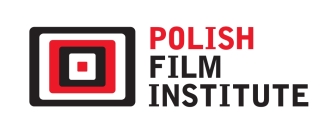On Authenticity and Popular Culture
Fabio Bego
bego.fabio@gmail.comindependent researcher (Belgium)
https://orcid.org/0000-0003-3339-9997
Abstract
In the review the author analyses Ewa Mazierska’s book Polish Popular Music on Screen (2020), which investigates the mutually entangled histories of Polish politics, cinema, TV, and music. Although it focuses on the Polish context, the general and theoretical observations that emerge from Mazierska’s analysis relate also to the broader former socialist Europe. Departing from Mazierska’s work, the author tackles the question of “(in)authenticity” in relation to popular culture. The word “authenticity” often appears in the text to express the critics’ opinions of cultural products, but it is not clearly defined. The review of Mazierska’s research starts with a preliminary analysis of the concept, which enables a transversal discussion of the data presented in the text. Then the author draws some conclusions about the current state of research on Eastern European culture by highlighting the limits and the potentials of the field.
Keywords:
popular culture, authenticity, popular music, subculturesReferences
Adorno, T. W. (1998). On Popular Music. In: J. Storey (ed.), Cultural Theory and Popular Culture: A Reader (pp. 197-209). Athens: The University of Georgia Press.
Google Scholar
Benjamin, W. (1969). The Work of Art in the Age of Mechanical Reproduction (trans. H. Zohn). In: H. Arendt (ed.), Illuminations (pp. 217-251). New York: Schocken Books.
DOI: https://doi.org/10.4324/9780429498909-39
Google Scholar
Buchanan, D. A. (ed.) (2007). Balkan Popular Culture and the Ottoman Ecumene: Music, Image, and Regional Political Discourse. Lanham: The Scarecrow Press.
Google Scholar
Heidegger, M. (1996). Being and Time: A Translation of “Sein und Zeit” (trans. J. Stambaugh). Albany: State University of New York Press.
Google Scholar
Mazierska, E. (2020). Polish Popular Music on Screen. Cham: Palgrave Macmillan.
DOI: https://doi.org/10.1007/978-3-030-42779-5
Google Scholar
Miszczynski, M., Helbig, A. N. (eds.) (2017). Hip Hop at Europe’s Edge: Music, Agency, and Social Change. Bloomington: Indiana University Press.
DOI: https://doi.org/10.2307/j.ctt2005sm8
Google Scholar
Schaefer, E. (1999). “Bold! Daring! Shocking! True!”: A History of Exploitation Films, 1919-1959. Durham: Duke University Press.
DOI: https://doi.org/10.1215/9780822395966
Google Scholar
Tochka, N. (2016). Audible States: Socialist Politics and Popular Music in Albania. New York: Oxford University Press.
DOI: https://doi.org/10.1093/acprof:oso/9780190467814.001.0001
Google Scholar
Authors
Fabio Begobego.fabio@gmail.com
independent researcher Belgium
https://orcid.org/0000-0003-3339-9997
Scholar specializing in the study of nationalism, state-building and the Balkans. He has studied Anthropology and International Relations in Rome before obtaining a PhD in European and International Studies at the Roma Tre University (2017). He has published several articles on the relations between Albanians and their Balkan and Italian neighbours. Curator of the Albanian Film Festival “Albania, si Gira!” held in Rome.
Statistics
Abstract views: 426PDF downloads: 321
License
Copyright (c) 2021 Fabio Bego

This work is licensed under a Creative Commons Attribution-NonCommercial-NoDerivatives 4.0 International License.
The author grants the publisher a royalty-free non-exclusive licence (CC BY 4.0) to use the article in Kwartalnik Filmowy, retains full copyright, and agrees to identify the work as first having been published in Kwartalnik Filmowy should it be published or used again (download licence agreement). The journal is published under the CC BY 4.0 licence. By submitting an article, the author agrees to make it available under this licence.
In issues from 105-106 (2019) to 119 (2022) all articles were published under the CC BY-NC-ND 4.0 licence. During this period the authors granted a royalty-free non-exclusive licence (CC BY-ND 4.0) to use their article in „Kwartalnik Filmowy”, retained full copyright, and agreed to identify the work as first having been published in our journal should it be published or used again.











